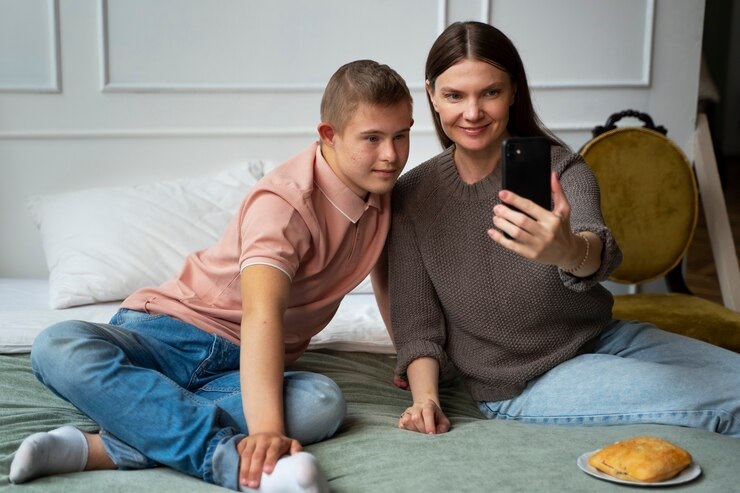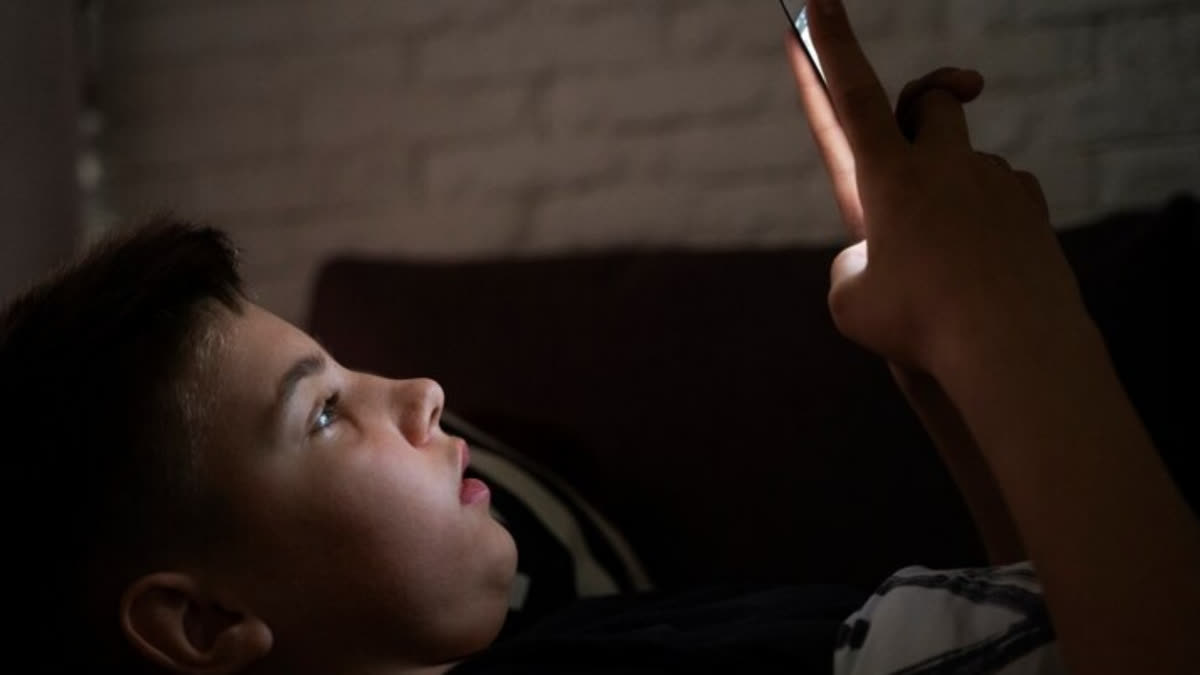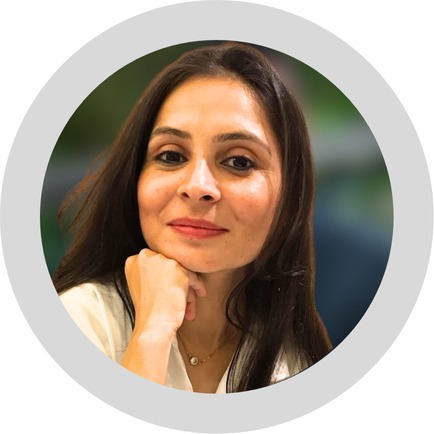Vivan Ahuja, a 15-year-old from Mumbai was introduced to TikTok during the pandemic, of course before it was banned by the government of India in June 2020 along with 58 other Chinese apps. Vivan initially used the platform to post dance videos. However, over time, he became obsessed with likes and comments and started comparing himself to influencers with millions of followers, especially Korean musicians and dancers. This led to a drop in his self-esteem, a decline in academic performance, and eventual isolation from friends and family.
"Rohan developed anxiety because he felt he wasn’t good enough. He started skipping meals, his results started to decline. He was so obsessed with the phone that when taken back, he would throw tantrums. I would force him to go and play with his friends outside but he wouldn't do that. I had to speak to his school counsellor and she pointed out that it was because he was addicted to social media which has affected his mental health and his performance in school," explained his mother, Neena Ahuja.
Social media and the young minds
This is one of the many cases in India. Data published earlier this month in the journal The Lancet shows that every third child is hooked to social media – counting likes watching reels on Instagram and Facebook or scrolling X (formerly Twitter). What is surprising is that 11% of them are addicted and even show withdrawal symptoms when stopped from using their devices. Another survey done in March this year revealed that about 60% of children between the age of 5-16 years exhibit behaviours indicative of potential digital addiction.
The numbers are disturbing and calling for an urgent need for effective strategies to mitigate these negative effects. In the digital era, social media has seamlessly embedded itself into the daily lives of billions. There's a unique cultural shift worldwide. Platforms like Facebook, Instagram, Snapchat, and YouTube are not only reshaping how we connect but are also significantly influencing the younger generation. However, the growing concerns about the adverse effects on children’s mental health, academic performance, and social development have set off heated debates. Recently, Australia introduced legislation prohibiting social media access for children under 16. Could India, with its 450 million internet users under 25, follow suit?
The double-edged sword
For children, social media is often a double-edged sword. It can inculcate creativity and connections but also expose them to cyberbullying, online predators, and mental health issues. According to a 2021 study by the National Commission for Protection of Child Rights (NCPCR), 37% of Indian children aged 10–14 use social media regularly, despite age restrictions. With smartphones becoming ubiquitous and the average age of first-time internet use dropping, parents often find themselves struggling to monitor their children’s online activities.
"I gave my 13-year-old a phone for safety reasons because he travels very far for school, but now I find him glued to Instagram and YouTube shorts for hours," said Sunita Sharma, a Delhi-based parent. "We try to limit screen time, but enforcing it is a daily battle," she shares.
15-year-old Abhinav, who goes by his first name, was addicted to his mother's phone watching YouTube music shorts. It was after some time that his parents started to notice significant changes in his behaviours. Abhinav began to follow a daily schedule and ensured to study on time without being asked, which wasn't the case earlier. Intrigued, his father intervened and found that he was following a motivational speaker from the US. "His influence made him behave differently," his father said.
Although the changes were positive, they raised concern for both parents, which led them to know more about the influencer. They found uncomfortable personality traits which, for parents, were against their value system. Smartly and strategically, Abhinav's father engaged him in outdoor sports, which reduced the time he would spend on social media. "It has come down to 15 minutes from three hours."
Abhinav's father was able to curb the severe consequences in time. But Avantika Sharma struggles to find a solution for her 13-year-old son's addiction. "I introduced him to my phone to distract him from eating. Now, he is completely into his phone. His studies suffer, and he is not interested in anyone. He revolts when I take away the phone," shares Sharma.

Indian lawmakers and child welfare experts are now pondering whether such measures should be adopted here. In a country where internet penetration is growing exponentially, the stakes are high.
Solutions of struggles?
For Indian parents, the challenge is multi-fold. Social media is not just a pastime for children; it’s often a status symbol and a means of peer validation. Restricting access can lead to conflicts and feelings of alienation. "I tried banning social media entirely for my 14-year-old daughter, but it backfired," says Ashok Meghani, a Mumbai-based software engineer. "She felt left out at school because all her friends were on Snapchat. Now, she uses it secretly, and I feel I have lost her trust," he adds.
This sentiment resonates with many parents, calling for the need for systemic solutions rather than individual efforts. Nirali Bhatia, a child psychologist based in Mumbai, supports the idea of banning social media for children under 16, emphasising the need to prioritise their mental health over convenience.
"Banning social media for children is not about depriving them of modern tools but protecting them during a vulnerable phase of development. It's a matter of convenience for parents to hand over smartphones, but this convenience often comes at the cost of a child’s focus and emotional well-being. Social media platforms are tuned to distract, and children simply don’t have the cognitive maturity to resist these distractions effectively," says Counselling Psychologist, Nirali Bhatia, who specialises in Cyber Psychology. "We all understand regulation is needed. It's not new that this dialogue is going on. If we are not doing it now, then it will go out of control," says the psychologist.
She further supports the age threshold of 16 and explains that it is a critical point in a child’s cognitive and emotional development. "At 16, children have a better understanding of consequences, stronger impulse control, and a more developed ability to distinguish between real and virtual worlds. This is why 16, and not, say, 14 or 18, is seen as a reasonable cut-off," she said. "Though, in India, it can be 18 as we parent our children longer than in the West."
Dr Monika Sharma, a clinical psychologist in Jaipur highlights that children under 16 are at a developmental age where their sense of self is easily influenced. "Social media algorithms are designed to keep users engaged, but for children, this often means exposure to unrealistic beauty standards, cyberbullying, and an addiction to validation," says Dr Sharma.
Digital literacy vs Blanket ban
Unlike Australia, India has unique socio-economic challenges that could complicate the implementation of such a ban. For one, the country has a significant digital divide. Many rural children rely on smartphones and social media for educational resources. Banning platforms outright might inadvertently restrict access to knowledge for these underprivileged groups.
Moreover, enforcing age restrictions would require robust infrastructure for age verification, which is currently lacking. Critics also argue that simply banning social media won’t address the root causes of the problem.
"Rather than a blanket ban, we need to focus on digital literacy and parental education," said cybercrime investigator Ritesh Bhatia. "Children should be taught how to navigate the digital world safely, while parents should be equipped to guide them. However, we need to see if parents have the time to be with their children. They were given a phone because their parents didn't have time. If now, we take out social media access and parents also have no time for them, then where would the child go? He will eventually find his ways to indulge in more harmful activities," opines Bhatia. To respond Bhatia, Nirali avers, "If it was a mistake to let kids and teens onto the platforms in the first place. But we are not powerless to correct that mistake."
Counselling Psychologist, Sree Ranganathan says, schools could play a pivotal role in mitigating the impact of social media. "Incorporating digital literacy programs into the curriculum could help children understand the risks and responsibilities of online behaviour. Platforms must be held accountable for protecting minors, perhaps by implementing stricter privacy settings and reducing the algorithmic push toward harmful content," says Ranganathan.
Striking the right balance
While Australia's move has sparked conversations globally, it’s clear that India needs a solution tailored to its unique demographic and cultural landscape. A ban on children under 16 might be a starting point, but it must be backed with strong measures to ensure its effectiveness. Bhatia aptly puts it, "We need to strike a balance. The goal isn’t to demonise social media but to ensure that children are not exposed to its darker sides before they are emotionally and mentally prepared."
For parents like Avantika, the hope is for a future where children can enjoy the benefits of technology without falling prey to its pitfalls. "If a ban can give my son a chance to focus on real-world connections, then I am all for it," she said.
In a nation as diverse and dynamic as India, the debate over social media regulations for children is far from simple. "But as the digital landscape evolves, so too must our strategies to protect the most vulnerable among us," says Child Psychologist Nirali Bhatia. Perhaps, as Australia has shown, it’s time for India to take bold steps toward safeguarding the mental and emotional well-being of its young generation.
Read More:



